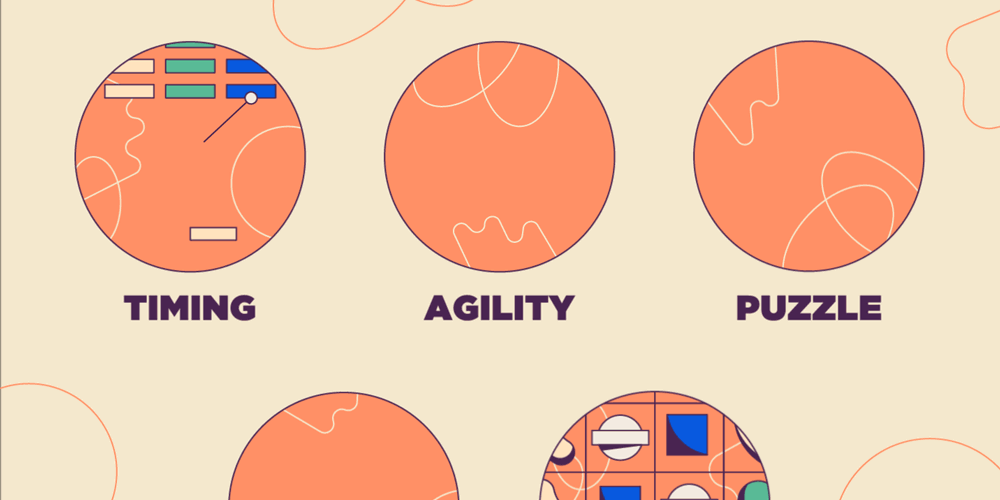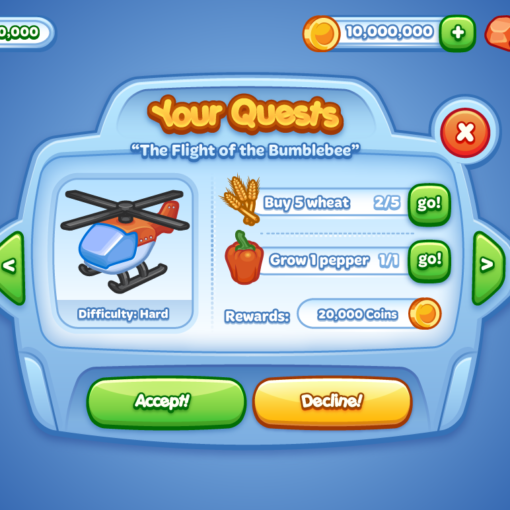This reading log entry responds to the following assigned articles:
Erick Schonfeld (2010) “SCVNGR’s Secret Game Mechanics Playdeck,” Tech Crunch. (Assigned for 8/30)
Jesse Schell (2019) “Game mechanics must be in balance,” The Art of Game Design (Third Edition). (Optional reading assigned for 8/28)
The Schonfeld article collects terms and theories related to ‘game mechanics’ and ‘game dynamics.’ After reading through the article, you should highlight at least two game mechanics that you found to be interesting. For each of these game mechanics, you should explain the concept in your own words and give an example of how this concept has been applied (or misapplied) in a video-games.
You should also feel free to ask questions about any terms in this article that are confusing or poorly defined. Your reading log entry should be between 200 and 300 words, but you should feel free to write a longer response if you have much to say.





Blissful productivity is the game mechanic in which a person rationalizes the time and work they spend on the game as an investment to further their progression and thereby their enjoyment in the game. The article’s example was for world of warcraft, which immediately caught my attention. I played the game for a while in high school and I could completely understand what the term was based on that game. People spend hours in games like WoW mainly due to it being an outlet for people to work hard on something that they really enjoy (e.g. leveling up a character,… Read more »
Two game mechanics I fond interesting where Virtual Items and Pride. Virtual items is defined as, Digital prizes, rewards, objects found or taken within the course of a game. While pride is defined as the feeling of ownership and joy at accomplishment. Often these can be traded or given away. Example that they give which I find odd was Godwalla’s items, Facebook gifts, and badges. To most people in the gaming community when we think of virtual items we think of a virtual physical good that our character interacts with or uses, or something that changes the UI or some… Read more »
Communal discovery is when a game developer introduces something new (such as a new game mechanic, an event, or a riddle) that players in a community come together to solve on their own. One great example I always think of is Pokemon Go. Recently, a new mythical Pokemon was introduced to players when it was released in the wild in Pokemon Go. There was no prior knowledge of this happening (as in no news on social media, no “upcoming special event”, etc) and players had to figure out exactly what was going on. Many thought it was a graphical glitch,… Read more »
Among all the game mechanics presented in this article, whether they be ones I personally enjoy or despise, they include several that I find important for keeping in mind while developing a game, no matter the type. A couple that I think are good to be mindful of in the development stages are Behavioral Contrast and Cascading Information Theory. Behavioral Contrast is the situation where if you have a certain reward for an action, then temporarily improve the reward, only to set it right back to the original, smaller reward, the player or subject will be unsatisfied or upset, even… Read more »
After reading Schonfeld’s SCVNGR’s secret game mechanics playbook, among the almost 50 different terms present in the article, the ones I found to be the most exciting terms were Blissful Productivity and Ownership. Starting with Blissful Productivity, I would describe this game mechanic as a type of enjoyment in which a player is keenly aware that the amount of “work” (game hours) he puts into it will yield better and more advanced results because of it. Using a similar example to World of Warcraft as Schonfeld uses in his article, I can think of a number of other games such… Read more »
The metagame is an extremely interesting topic for me. SCVNGR defines this as a game within a game or hidden achievements. My favorite example of this is one of the most elaborate easter eggs to be included in a shooter game. I am referring to the Phantom Bow in Battlefield 4. The phantom Bow was only attainable for 4 players at a time on a certain map, after a multitude of requirements were met, and 3 secret codes were entered into a hidden elevator. Before any of this, players had to browse the game’s website and ender an additional secret… Read more »
I chose to talk about Companion Gaming (cross platform) and Lottery as my two game mechanics since both are somewhat of a hot topic in the gaming world right now. Companion Gaming, also known as cross platform compatibility, is when two or more players who are not using the same medium (pc, Xbox, Playstation, Switch) are able to play together. This is usually met with positive feedback when it is added/applied to a game. I mean who doesn’t like playing with friends. Now for lottery. This is a great way to keep players interested in a game but it can… Read more »
As I mentioned on the last blog post, there so many things that go into making a video game that I had never even considered. In this case, the article talked about different game mechanics used in video games to keep the player/user engaged, as well as to create a successful and distinctive game. Instead of mentioning two of the mechanics I will mention a couple more, since two I can apply a bit more to apps that I use on the daily (since I don’t play much video games.) The first mechanic was achievement: I see this a lot… Read more »
The appointment dynamic was interesting to me because of how widespread it has become in my experience. This means that players have to log in to the game at specific times to receive certain rewards. Originally, my only experience with this mechanic was in old Facebook games where they would give you daily prizes. I always thought that was the only place that sort of feature would work because, when I saw it in random flash games, the usage didn’t really make sense. This was likely also connected to my opinion of flash games at the time, which was that… Read more »
Confession time: I have a considerable lack of tolerance for mobile games, in the same way that my brother has no tolerance for dairy or Ayn Rand had no tolerance for people who chain smoke and net millions of dollars. Everything about them, from their flashy UIs to the constant sense of being sold to throughout the playing experience just stresses me out, to the point where it’s been years since I’ve even downloaded a mobile game on my phone. With this said, I found Erick Schonfelds’s SCVNGR article absolutely fascinating, precisely because it allowed me to put terms to… Read more »